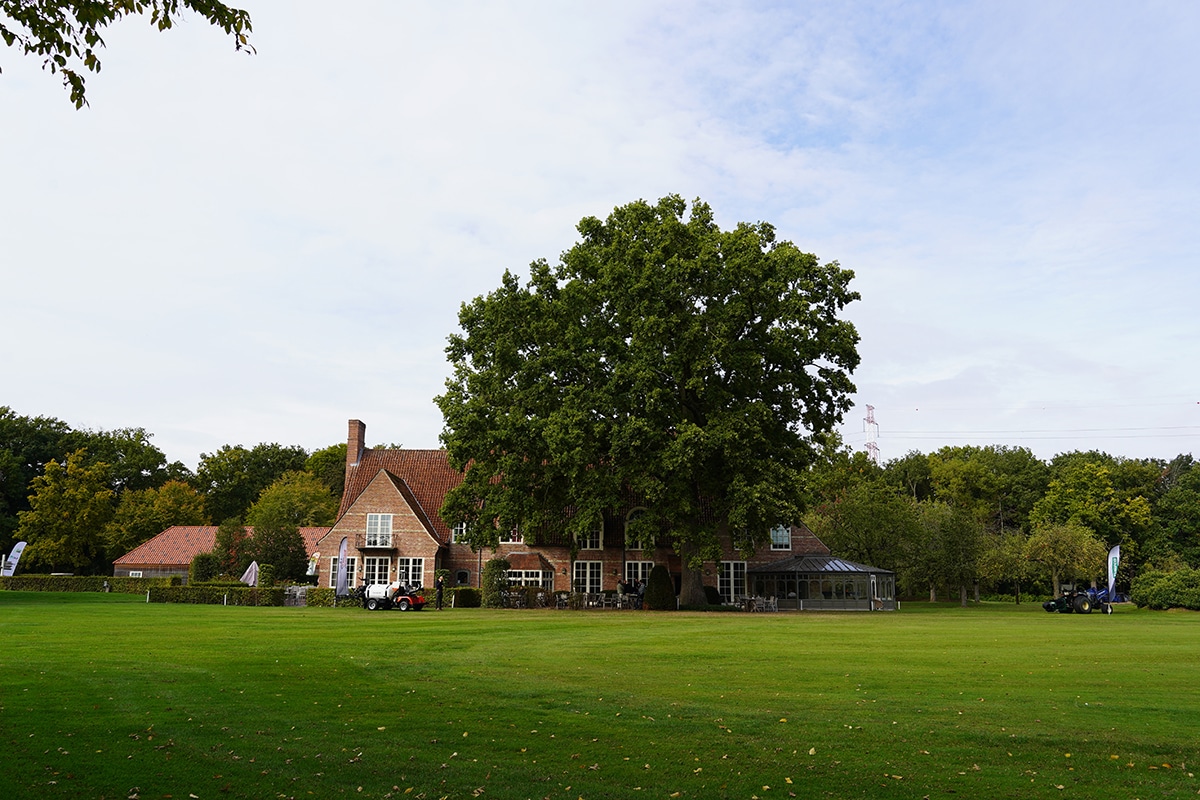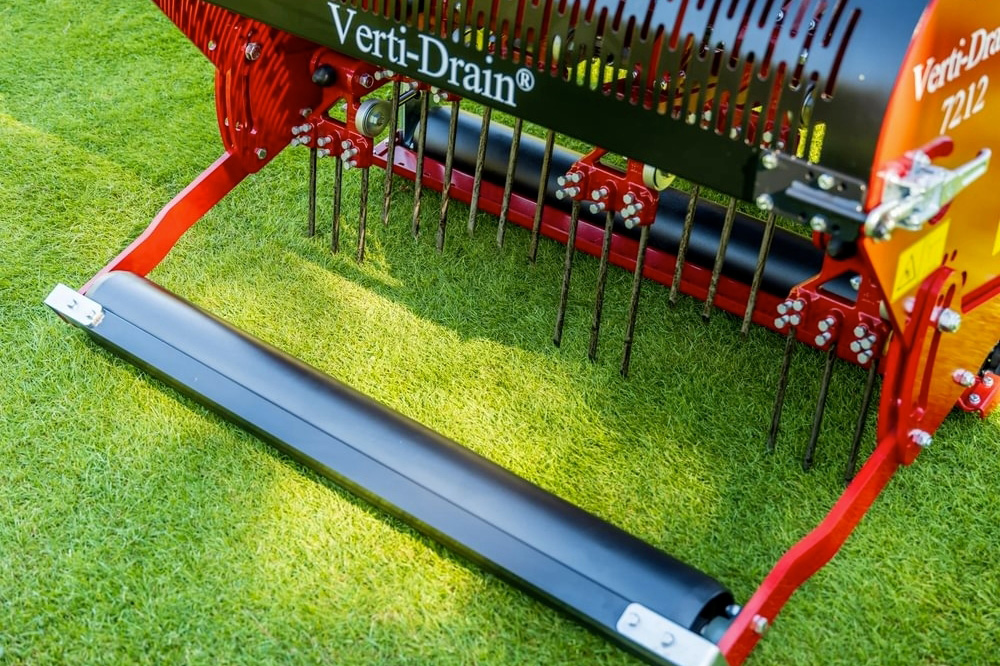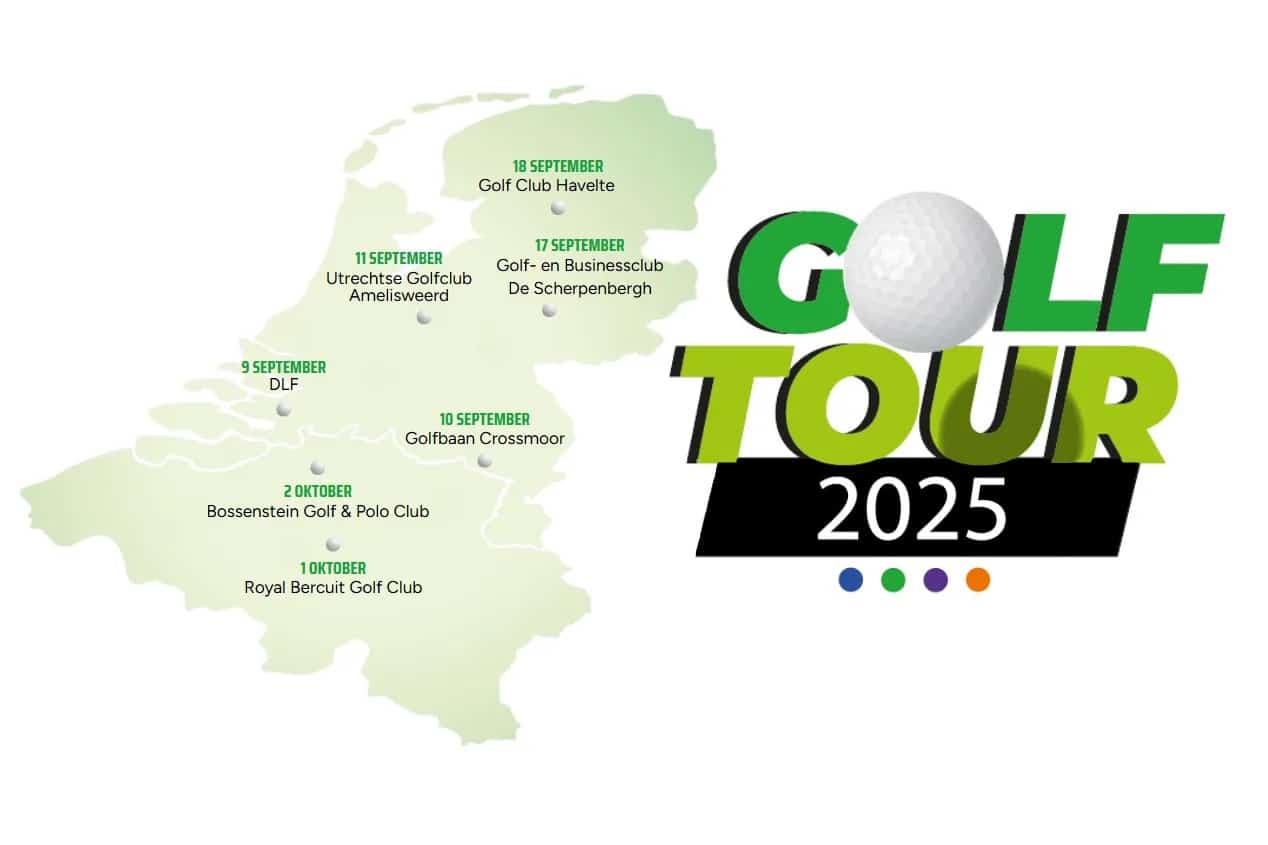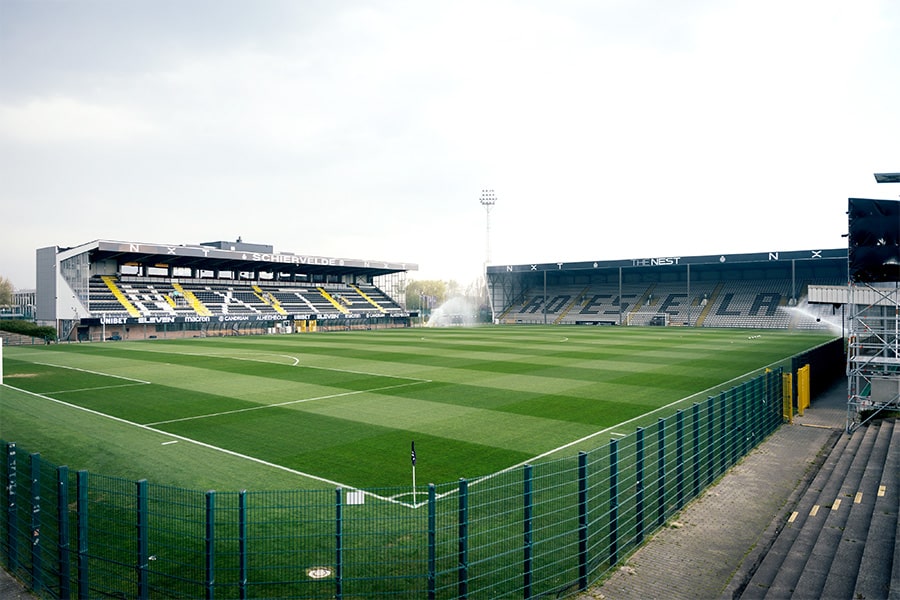
Inside look at the groundsmen of Club Brugge
"The playing calendar requires a lot of flexibility from us."
Belgian soccer is catching up. We are not necessarily talking about what happens on the field, but at least as much about that field an sich. "Clubs are starting to understand better and better that with a quality field they also attract better players and better soccer," believes Axel Geerinck, Head of Greenkeeping at Club Brugge. During his career, he has seen the appreciation for, and consequently the investments in his job increase; only the calendar still does not sufficiently take into account the needs of a quality field.
Geerinck heads a team of eight groundsmen, who together are responsible for no fewer than eleven natural pitches and two artificial turf pitches, spread across three locations. In addition to the main pitch at the Jan Breydel Stadium and the four surrounding youth pitches, Club Brugge recently also disposes of a smaller stadium in Roeselare, as well as four training pitches for the first team and promising players in Westkapelle.
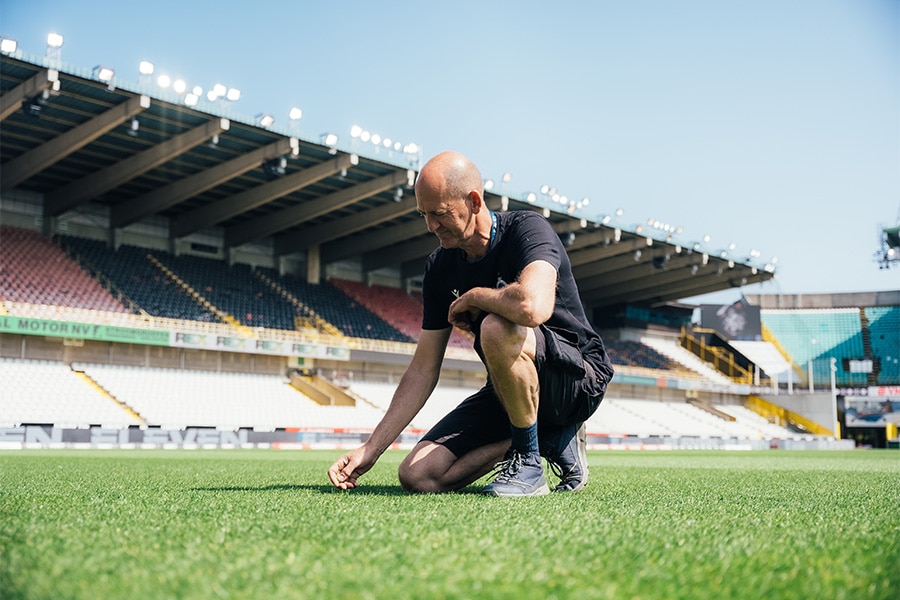
Modern technologies
Club Brugge's fields are equipped with the most modern technologies, including sprinkling, field heating and grow lights. "These are obviously expensive installations," Geerinck knows, "but they are undoubtedly worth the investment. Whereas in the past we dared to be criticized for our fields, we haven't heard any complaints for years now." In the current context of climate extremes and product bans, such techniques are also increasingly necessary, according to the groundsman. "Of course we also do preventive biological control of weeds, pests and diseases, and we use, for example, wetting agents to make better use of water, but in extreme conditions that is not always sufficient. So I have enormous respect for the groundsmen of smaller clubs who manage to achieve the same results without modern facilities and budgets."
"Although, of course, no technology is infallible. In the summer period, we therefore ensure daily monitoring of both the field and the sprinkler system, even when, in principle, no one should be there. Just in case the sprinkler system fails during a dry weekend, just after sowing. Then your efforts are for nothing. You always have to stay alert."
Complex planning
The geographical fragmentation of the fields also requires Club Brugge to pay extra attention and invest. "If all the fields were in one location, three good mowers would be enough, for example. Instead, we now have twice as many, so we can mow everywhere at once. In principle, each location has its own crew and site manager for this.
Only on larger works, such as during the renovation period, does everyone at other sites jump in and for specific tasks - the construction of a new sprinkler system, for example - do we call on outside parties."
In addition, Geerinck must ensure that the necessary seeds, fertilizers and other products and equipment are always available at each site. "That does require some coordination," the groundsman admits, "although it is by no means my biggest challenge in that area. It is mainly the playing calendar that worries me. The fact that two teams play on our A-field - both Club Brugge and Cercle Brugge play their home games at the Jan Breydel Stadium - and that it is played every week does not make things any easier, of course, but the rest periods are also getting shorter. This year, for example, we could only start our renovation works in mid-June, while Cercle Brugge's first (practice) match is already on July 15. That does not give us enough time to thoroughly renovate the hybrid pitch. Instead of completely stripping it, we are forced to limit ourselves to scarifying this year."
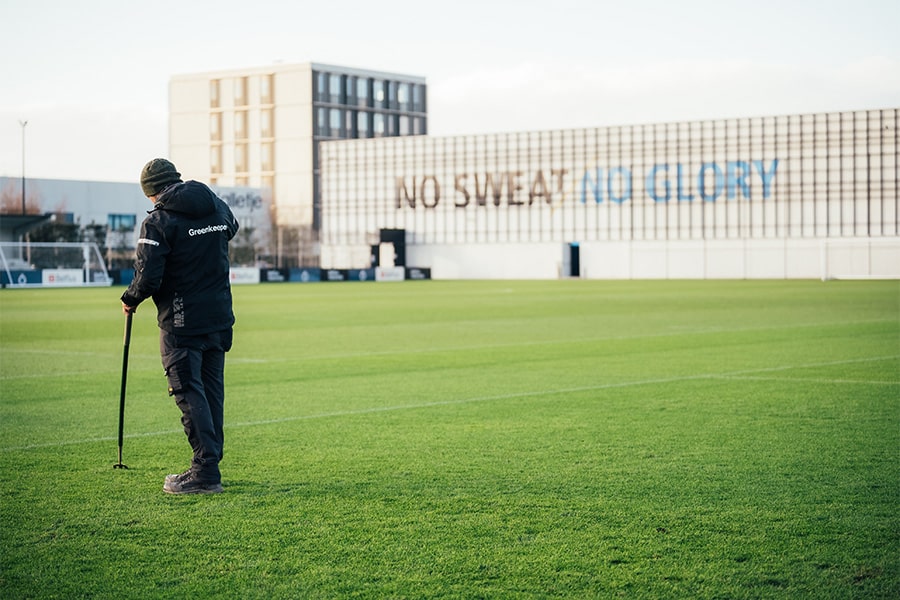
Play Ready
In daily operations, Geerinck sees a similar evolution. "Getting the fields ready to play, as well as repairing them afterwards, is a daily job. That includes mowing, lining and watering, but also, for example, preparing goals, corner flags and so on. On match days these days, however, that work must be completed three hours before kickoff in order for there to be enough time to calibrate the VAR cameras. But if you know that the preparatory work quickly takes three hours and that a lot of matches are played in the afternoon, then you quickly understand that during the winter period, when it is still dark in the morning and regularly freezing, this kind of work does require a lot of skill. In that respect, therefore, there may also be a little more attention from the Pro League to the greenkeepers - something which is now being potentially fulfilled with the establishment of a working group."

